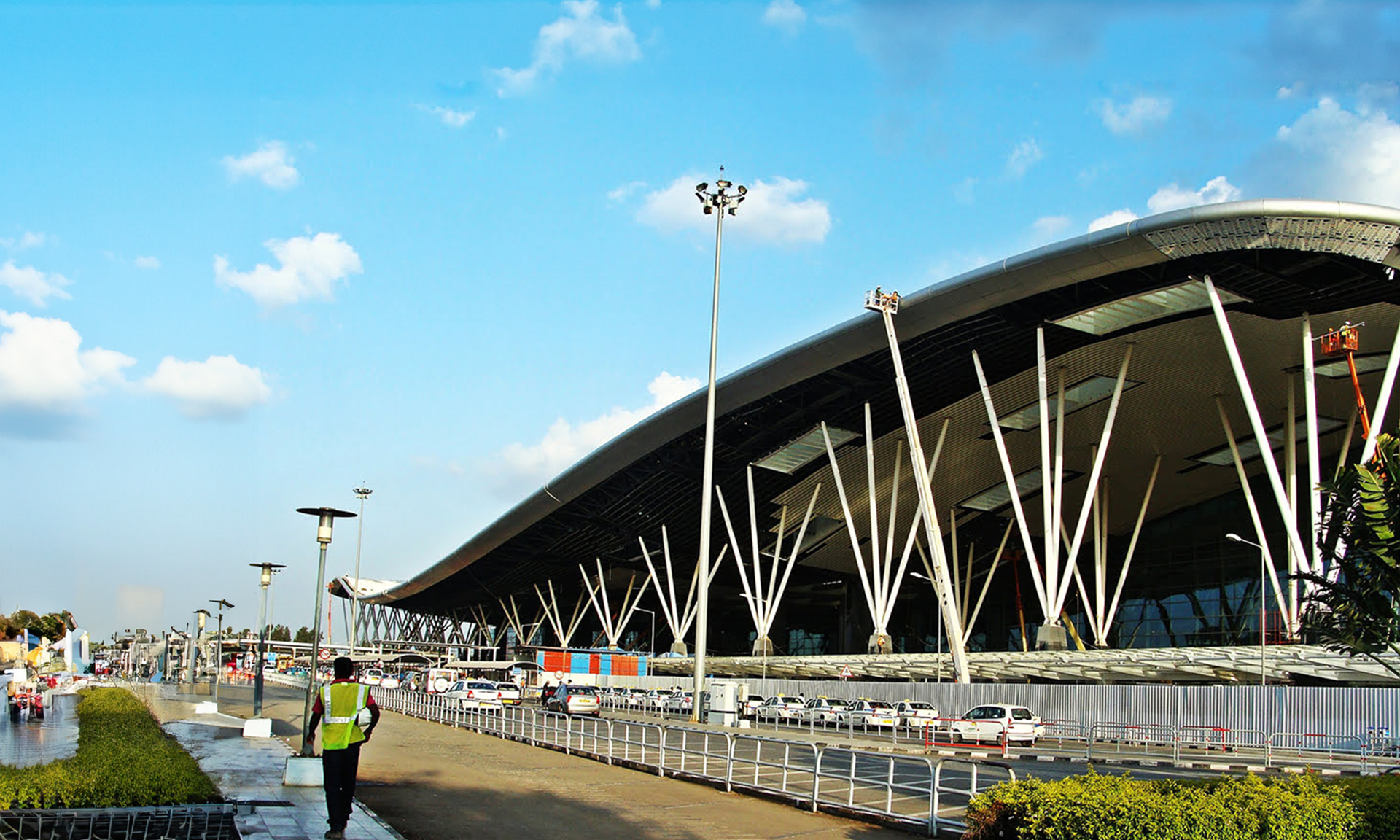In a historic and broad-based consensus on the needed reforms for the international tax system to address the digitalisation of the global economy, the Organisation for Economic Co-operation and Development (OECD) / G20 through the Inclusive Framework (IF) on Base Erosion and Profit Shifting (BEPS) set out a Statement on the two pillar solution for global tax challenges that was approved by 130 of the member jurisdictions and countries as of 5th July 2021.
The agreement was reached after carrying out lots of technical work and holding a series of discussions by the 139 member countries of the Inclusive Framework. A ” two-pillar” approach developed jointly, proposes the allocation of profit to countries in which a multinational entity (MNE) engages itself in selling activities to derive value and imposition of a global minimum rate of tax.
Pillar One is a significant shift from the century-old international tax system where only an entity with a physical presence in a country can only be taxed.
There are many countries announcing consensus with the proposals and include China, India, Switzerland, Singapore, the United Arab Emirates (UAE), Bermuda, Jersey, Guernsey and the Isle of Man. Inclusive Framework (IF) member countries that have not yet approved the proposals are European Union (EU), Ireland and Hungary.
Countries that do not currently levy corporate income tax or have effective tax rates below the proposed global minimum tax rate of 15% such as the UAE and Bahrain, will be subject to some key decisions.
The draft ‘Blueprints’ of the technical aspects of the proposals under these two pillars were issued by OECD on 12th October 2020. However, discussions on the design of measures continued and got refined over time by some concerned jurisdictions and included regulations for addressing profit allocation issues, Pillar One and the global minimum tax rate, Pillar Two.
Afterwards, the Biden Administration in the USA simplified the proposals in April 2021 and updated them to facilitate the political agreement reached by the G7 countries in June 2021.
October 2021 has been set as a target to finalize the detailed implementation plan including resolution of any pending issue.
The OECD/G20 Inclusive Framework on Base Erosion and Profit Shifting based on a two-pillar solution has some key components for each Pillar as outlined below.
PILLAR ONE
Pillar One has been designed to reallocate profits for large companies to market countries.
‘Amount A’ of Pillar One would provide a new right of taxation to market jurisdictions on residual profit. The statement stipulates important developments regarding the scope and computation of Amount A. The statement states that Amount B is meant for streamlining the application of the arm’s length standard to routine marketing and distribution activities, but does not substantiate Amount B.
Scope
Multinational enterprises (MNEs) with global turnover exceeding 20 billion euros and profitability of more than 10% measured as ‘profits before tax divided by revenue’, come under the purview of Pillar One. This turnover limit would be reduced to 10 billion euros 7 years after Pillar One comes into force contingent on successful implementation.
Extractives and Regulated Financial Services are not included in Pillar One.
New Taxing Right Calculation
The statement sets forth a new special-purpose nexus rule allowing allocation of Amount A to a market jurisdiction when the qualifying or in-scope MNE derives a minimum of 1 million euros in revenue from that jurisdiction. For Jurisdictions with a GDP of fewer than 40 billion euros, the nexus will be set at 250 000 euros.
The special-purpose nexus rule applies solely for assessing if a jurisdiction qualifies for the Amount A allocation.
The statement specifies that for qualifying businesses, 20 to 30% of their residual profits, more than 10% profit level needs to be reallocated to market countries using an allocation key based on revenue.
Revenue Sourcing
Revenue sourcing will be done to the end market jurisdictions where goods or services are consumed. Detailed sourcing rules will be developed for specific categories of transactions to facilitate the underlying principle. In applying the sourcing rules, an MNE must use a reliable method depending on specific facts and circumstances of the business.
Determining Tax Base
Profit or loss of the in-scope businesses will be based on financial accounting income, as relevant with minimum adjustments and carry forward of losses will be done.
Segmentation
The statement specifies that segmentation would only be needed in exceptional cases in which, depending on the segments figured in financial accounts, a segment would meet the scope limit.
Marketing and Distribution Profits Safe Harbour
Where the residual profits of an in-scope business are already taxed in a market jurisdiction, a marketing and distribution profits safe harbour will limit the residual profits allocated to the market jurisdiction through Amount A. For outlining a more comprehensive scope, future work will be undertaken on designing a safe harbour.
Elimination of Double Taxation
Reliefs on double taxation of profit allocated to market jurisdictions will be either through exemption or credit method.
The entities that will be subjected to taxation would be compensated from those that earn residual profit.
Tax Certainty
The statement provides a commitment that MNEs will benefit from dispute prevention and resolution mechanisms including avoidance of double taxation for Amount A and all issues related to Amount A such as transfer pricing and business profits disputes in mandatory binding dispute prevention and resolution mechanism. Disputes on whether issues may relate to Amount A will be resolved in a mandatory and binding manner.
The statement says that consideration will be given for an elective binding dispute resolution mechanism for issues related to Amount A for certain developing countries with few and no mutual agreement procedures and who are eligible for deferral of their BEPS Action 14 peer review.
The statement commits simplification and streamlining of ‘Amount B’ for application of the arm’s length principle to in-country baseline marketing and distribution activities particularly focused on the needs of low capacity countries and completion by the end of 2022.
Administration
The statement provides a commitment to streamlining tax compliance and filing by allowing MNEs to manage the process through a single entity.
Digital Service Tax (DST) Removal
The statement assures appropriate and unilateral measures on the application of newly introduced international tax rules and the removal of all Digital Service Taxes and other relevant similar measures on all companies.
Implementation
The statement offers that ‘Amount A’ will be implemented through a multilateral instrument which will be developed and made available for signature in 2022 and the ‘Amount A’ will come into force during 2023.
PILLAR TWO
Pillar Two deals with the Global Minimum Tax rate and will ensure that in-scope businesses pay a minimum effective tax rate of at least 15% on profits in all jurisdictions.
Overall design
The statement describes Pillar Two as consisting of two interlocking domestic rules, Income Inclusion Rules (IIR) and Undertaxed Payment Rule (UTPR) together called the Global anti-Base Erosion Rules or GloBE rules and the Subject to Tax Rules (STTR).
Income Inclusion Rule (IIR), will impose a top-up tax being payable by a parent entity to the tax authorities in respect of the low taxed income of a constituent entity.
Undertaxed Payment Rule (UTPR) will be applied as a secondary rule that denies deductions or requires an equivalent adjustment to the extent the low tax income of a constituent entity is not subject to tax under an IIR.
The Subject to Tax Rule (STTR)), a treaty-based rule incorporated in bilateral treaties by countries will allow source countries to enact limited source taxation on certain related payments including interest, royalties and other payments to the parties subject to tax below a minimum rate. The STTR will be creditable as a covered tax under the GloBE rules.
Status of Rules
The statement specifies the GloBE rules as a ‘ common approach’ implying that IF member countries are not needed to adopt the GloBE rules however must accept their application by other IF members. If the member countries that adopt the application of the GloBE rules would agree to implement and administer the rules consistent with the agreement reached on Pillar Two.
Scope
The statement notes that GloBE rules will apply to MNEs with revenues exceeding 750 million euros and as determined under BEPS Action 13 country by country (CBC) reporting. The statement notes that countries can freely apply the IIR to MNEs headquartered in their country even if they are not in scope.
Exclusions are noted as GloBE rules will not apply to Government entities, international organisations, non-profit organisations, pension funds or investment funds that are Ultimate Parent Entities (UPE) of an MNE Group or any holding vehicles used by such entities, organisations or funds.
Design of Rules
The statement provides that the IIR allocates top-up tax based on a top-down approach wherein the application of IIR by the country at or near the top of the ownership chain of the MNE group is prioritized subject to a split-ownership rule for shareholdings below 80%.
The statement also notes that UTPR allocates top-up tax from low-tax constituent entities including those located in the UPE jurisdiction under a methodology to be agreed upon.
Calculation of Effective Tax Rate (ETR)
The GloBE rules specify imposition of top-up tax by utilizing an effective tax rate test that will be calculated based on jurisdictions and using a common definition of covered taxes including the tax base determined by reference to financial accounting income with small and agreed on adjustments consistent with the tax policy objectives of Pillar Two and mechanisms to address timing differences.
Regarding the existing distribution tax systems, there will be no top-up tax liability if earnings are distributed within 3 to 4 years and taxed at or above the minimum level.
Minimum Rate
The statement notes that the minimum tax rate to be used for the IIR and UTPR will be at least 15%.
Carve-outs
The statement notes that GloBE rules will provide a formula based substance carve-out that will exclude an amount of income that is at least 5% and a minimum of 7. % during the transition period of 5 years of the carrying value of tangible assets and payroll.
The statement commits to a de minimis exclusion In the GloBE rules.
Additional Exclusions
International shipping income using the definition of such income under the OECD Model Tax Convention also finds an exclusion in the GloBE rules
Simplifications
To avoid compliance and administrative costs that are disproportionate to the policy objectives, the implementation framework will include safe harbours and/or other mechanisms to facilitate the administration of GloBE rules for the targeted jurisdictions.
Global Intangible Low Taxed Income (GILTI)
The statement notes that to ensure a level playing field the Pillar Two will apply a minimum rate on a jurisdictional with consideration given to the conditions under which the US GILTI regime would coexist with the GloBE rules.
STTR and Bilateral Treaties
The statement highlights that IF members recognise STTR as an integral part of achieving a consensus on Pillar Two for developing countries. IF members that apply nominal corporate income tax rates below the STTR minimum rate to interest, royalties and a defined set of other payments if requested will incorporate the STTR during bilateral treaties with developing IF members.
The statement provides that the difference between the minimum rate and the tax rate on the payment would limit taxing right and the STTR minimum rate will vary from 7.5% to 9%.
Implementation
The statement notes that on reaching an agreement the IF members will release an implementation plan contemplating that Pillar Two should be brought into law in 2022 and to be made effective during 2023.
The implementation plan will include:
- GloBE Model rules with proper mechanisms for facilitating GloBE rules coordination
- An STTR model provision for facilitating the adoption
- Transitional rules with a provision for a deferred implementation of the UTPR
Clarifications Requirements
Though the statement clarifies many issues and technical aspects, some key political and technical aspects remain unanswered including
- The definitive minimum rate to be applied
- ETR calculation mechanism
- Designing of the “de minimis exclusion” carve-out
- Designing of exclusion for MNEs during the initial phase of their international activity
- UTPR designing
- The scope of the simplification plan
- STTR minimum rate
Future Steps
The IF agreement on BEPS 2.0 highlights the hopes and desires of the member countries for a global minimum tax rate with limited impacts on MNEs performing real economic activities with substance. The two-pillar proposals will be again discussed amongst the G20 Finance Ministers on 9th and 10th July 2021.
The consensus amongst 130 member countries is a significant development and in all likelihood will be implemented and accepted internationally as planned.






























 IMC Group
IMC Group